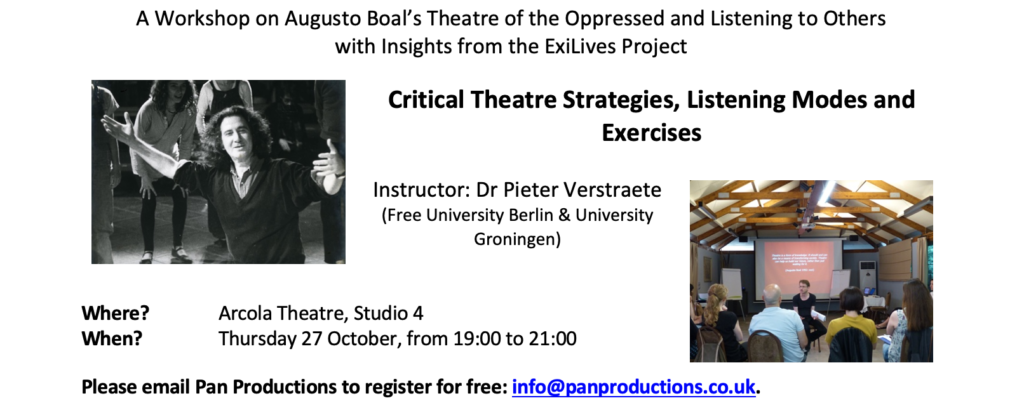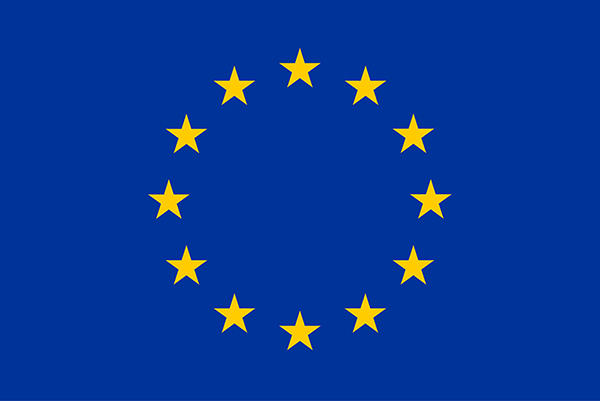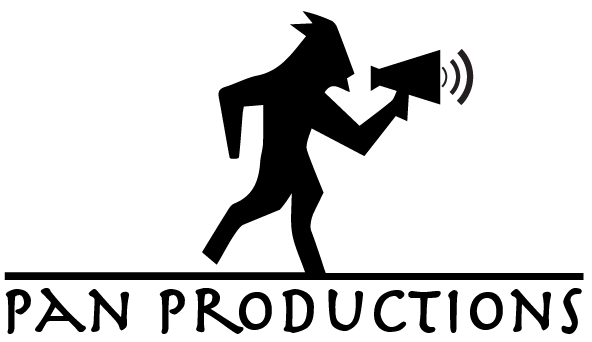A Workshop on Augusto Boal’s Theatre of the Oppressed and Listening to Others
Radical Theatre Strategies, Listening Modes and Exercises in Self-Exile
Instructor: Dr Pieter Verstraete (Free University Berlin & University Groningen)
Where? Arcola Theatre, Studio 4
When? Thursday 29 September, from 19:00 to 21:00
This workshop, led by Dr Pieter Verstraete, focuses in the first part on the ethos and methods of Brazilian theatre practitioner, playwright and director Augusto Boal (1931-2009) who wrote his manifesto of the Theatre of the Oppressed in exile in 1971 after being tortured and imprisoned for his dissident activities against the Brazilian military regime after the 1964 military coup d’état. Exile will be one central theme which we will explore on the basis of on current research by Dr Verstraete, entitled “Exiled Lives on the Stage”, which focuses on questions of self-exile in the Turkish-Kurdish art communities. Through Boal’s arsenal of games and techniques, we will then explore the different forms of theatre that branched out of the Theatre of the Oppressed (TO) and their impact within the Brechtian idea that theatre can effect social change. In the second part of the workshop, we will zoom in further on one of the least developed branches of TO’s roots, which is sound and listening. We will explore listening skills through exercises, based on R. Murray Schafer’s World Soundscape Project and Pauline Oliveros’ deep listening. They will help us to listen in a more attuned way to the environment and to each other, letting the noise in as a source for resilience. We end with a practical reflection on ‘hungry listening’ as a more self-reflexive, ethical practice in situations of bi-cultural inbetweeness.
The workshop is free for everyone, inclusive and is particularly meant for young theatre professionals, graduates and amateurs of any level or background.
Language of instruction is English.
Please email Pan Productions to register for free: info@panproductions.co.uk.
This project has received funding from the European Union’s Horizon 2020 research and innovation programme under grant agreement No 893827.





